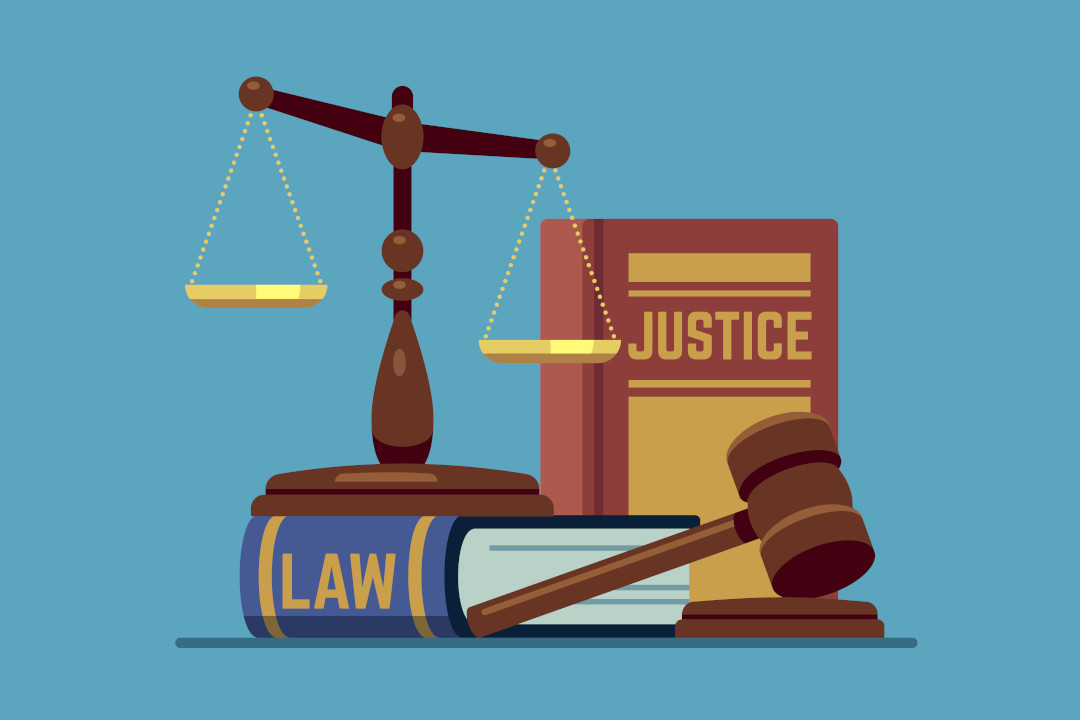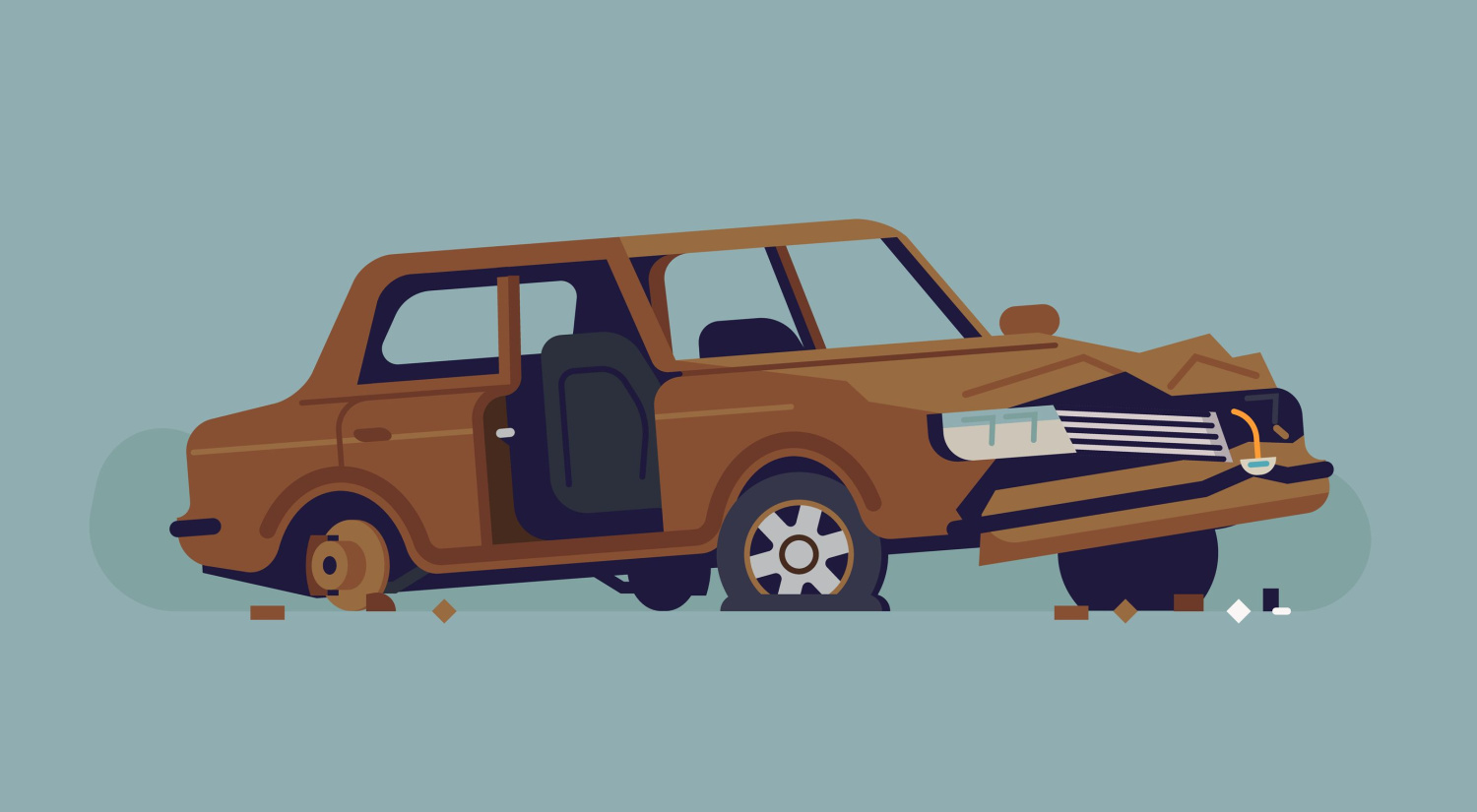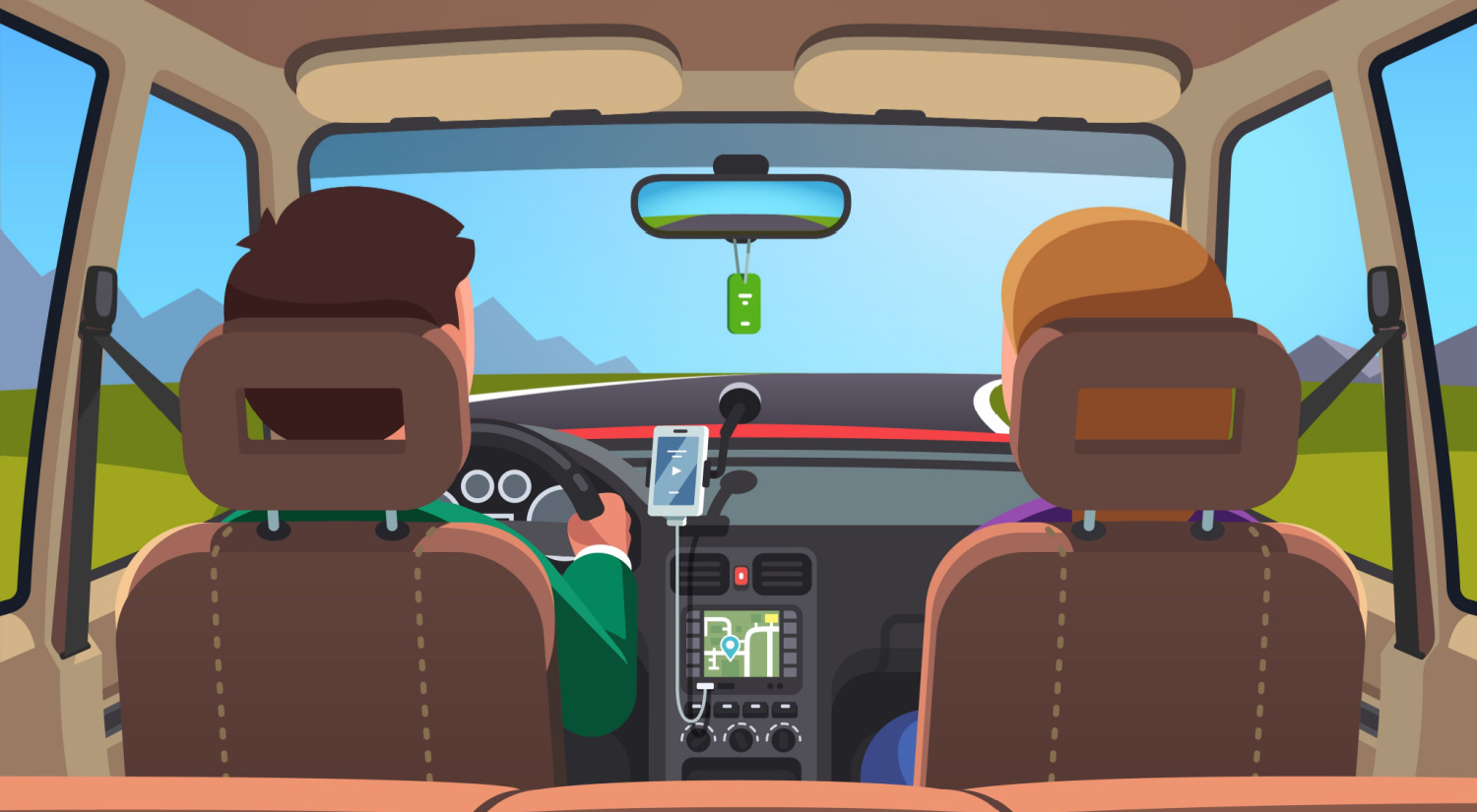
Can I Sue? Common Scenarios/Situations Following A New Jersey Car Crash
If there’s one thing worse than being in a car accident, it’s finding out that an unforeseen issue may or may not prevent you from pursuing adequate compensation. You may be in pain, daily life activities such as housework, school, or work are now more challenging, and medical bills are piling up.
What happens if the other driver does not have any insurance or a minimal amount of insurance? What if you are an undocumented/illegal immigrant? What if your license is suspended or your insurance has lapsed? As every accident involves many factors, it’s hard to say how your specific situation will play out, but the following post aims to answer common situations generally.
What if the at-fault driver does not have insurance or has a minimal amount of insurance?

Medical Bills
With respect to your medical bills, and as discussed more fully in a previous post on New Jersey’s PIP law, typically, you will look to your insurance to pay your medical bills, as New Jersey is a “no-fault” state. However, that doesn’t mean the driver who caused the accident isn’t at-fault. Instead, no-fault simply refers to the laws regarding New Jersey insurance coverage of medical bills. In first-party states, the laws are designed to pay bills quickly, rather than waiting for insurance companies to determine the facts and confirm who was at fault.
Short answer: as New Jersey is a “no-fault” state, in most cases, you will typically look to your own insurance company to pay your medical bills, regardless of whether the other driver is insured.
Property Damage
This is an area that will, unfortunately, seem unfair. You want to believe that the person who caused the accident will also be the person who will have to fix your vehicle. However, if the at-fault driver is uninsured, your best option may be to pursue your insurance policy.
Collision insurance is a type of coverage you may purchase under your auto insurance policy. This insurance will cover the costs to repair your vehicle, but you will be responsible for paying a deductible.
Short answer: while it may seem unfair, if the other driver is uninsured, you will, in most cases, have to look to your collision insurance to repair your vehicle, which will ordinarily require you to pay a deductible.
Pain and Suffering
Where the at-fault driver does not have insurance, you may be wondering what your options are regarding compensation for your pain and suffering. Standard auto insurance policies in New Jersey are required to include uninsured (UM) and underinsured (UIM) motorist benefits. As the names indicate, uninsured motorist benefits will be available under your policy where the other driver is uninsured. In contrast, underinsured benefits may be available if the other driver has minimal benefits.
While briefly touched upon in a previous post, UM/UIM claims are often difficult to navigate and involve complex laws. Consequently, you are well-advised to retain a New Jersey car accident attorney if this is the situation you find yourself in.
Nevertheless, filing an uninsured motorist or underinsured motorist claim with your insurance company can get you the money you need for lost wages, if your injuries keep you out of work; medical expenses, in certain circumstances; and pain and suffering, or the portion of your claim that represents non-economic damages.
While you might think that filing a claim with your own insurance company would be easy, because well, it’s the company that you pay for coverage, many insureds often find it even more difficult to get the compensation you need from your insurance carrier. You should also be aware of seminal decisions such as the New Jersey Supreme Court decision in Rova Farms Resort, Inc. v. Investors Ins. Co. of America, 65 N.J. 474 (1974) concerning bad-faith actions against first-party insurers and Longworth v. Van Houten, 223 N.J. Super. 174 (App. Div. 1988) regarding the requisite “Longworth approval” needed to pursue an underinsured motorist claim.
Short answer: New Jersey law requires Standard Policies to contain uninsured (UM) and underinsured (UIM) benefits. If the driver that caused the accident is uninsured or has minimal insurance, you may pursue a claim against your own insurance company. However, these types of claims can be complex, and you are well-advised to speak with an experienced New Jersey car accident attorney.
Can I still sue if I am involved in a car accident as an illegal immigrant?
The United States Constitution permits rights of access to courts by undocumented immigrants under the Fifth (Federal Courts) and Fourteenth (State Courts) Amendments to the United States Constitution.
In addition to the above constitutional guarantees, New Jersey courts have likewise reasoned that if insurance companies can insure undocumented immigrants but then reverse and renege the agreement when a covered loss occurs, it would undermine public policy.
Specifically, the Appellate Division in Montoya v. Gateway Ins. Co., found, among other rights, that: 1) an alien illegally in the country is eligible at common law to sue in state courts for personal injuries, 2) that an individual's illegal status does not preclude them from recovering medical expenses under their policy, and 3) that to find otherwise would be against public policy. See generally 168 N.J. Super. 100 (App. Div. 1979). Therefore, there is no question that an undocumented immigrant may sue in New Jersey for personal injuries sustained in a car accident.
While these rights exist, illegal aliens are often still fearful of deportation. However, in November 2018, Attorney General Gurbir Grewal issued the “Immigrant Trust Directive.” The directive is a statewide policy designed to increase the trust between the officers and judicial system and the state’s diverse immigrant communities.
Nevertheless, an experienced New Jersey personal injury attorney can, in most cases, resolve your claim without the need to go to court. If you are an undocumented immigrant who was injured in a car or truck accident, the attorneys at Farrell & Thurman, P.C. can advise you on the best option forward.
Short answer: yes, illegal immigrants enjoy the same rights as citizens with respect to personal injury claims and can pursue a lawsuit for compensation if injured in an accident. Further, Attorney General Gurbir Grewal has issued the Immigrant Trust Directive, which instructs officers in most cases not to report the status of litigants to Federal Authorities. Nevertheless, in most cases, an experienced personal injury attorney can resolve your claim without the need to go to court.
Can I still sue if I am involved in a car accident and I don’t have a driver’s license or my license has been suspended?

Third-Party Claim
The Appellate Division in Mattero v. Silverman held that “automobile licensing statutes create only a public duty and do not render an unlicensed driver without recourse against those with whom he collides if he is otherwise exercising proper care.” 71 N.J. Super. 1, 8 (App. Div. 1961). See also Muller v. W.J. & S. R. Co., 99 N.J.L. 186 (1923); and Renner v. Martin, 116 N.J.L. 240 (1936). Upon reaching this conclusion, the Mattero court directed that “the lack of a license stands as a neutral fact, irrelevant to the issue of a driver’s negligence, unless it be shown directly or by reasonable inference that this was a moving and efficient cause of the action.” Ibid.
In other words, the failure to possess a valid license at the time of an accident in most cases will not prevent you from suing the other driver. It is inadmissible unless shown that the lack of license is relevant to the happening of the accident.
Short answer: yes, if you have lost your license or have not possessed one prior, you can still sue the at-fault party for compensation.
First-Party Claim
While the lack of a license in most cases will not prevent you from suing that at-fault driver, most if not all insurance policies will contain a clause disclaiming coverage for the failure to possess a driver’s license. Consequently, while in New Jersey you would ordinarily pursue payment of your economic damages (e.g., medical bills or vehicle repair bills) through your insurance, your policy will likely preclude you from payment of these bills if you failed to possess a driver’s license at the time of the accident.
The Appellate Division in Martin v. Rutgers Casualty Insurance Co. held that an unlicensed operator of a motor vehicle “who had to know she was not entitled to drive this automobile” because of her suspended license was not entitled to PIP coverage and UM benefits for injuries received while operating a vehicle without a license. 346 N.J. Super. 320, 325-26 (App. Div. 2002). Therefore, as first-party benefits are contractual in nature, they will ultimately depend upon the specific provisions of your insurance policy. However, virtually all New Jersey insurance contracts will contain exclusions for failing to possess a driver’s license.
Notwithstanding, unpaid bills may be pursued through the at-fault driver’s insurance. However, numerous complex issues are likely to arise, and your best bet at compensation for your outstanding bills is to hire an experienced New Jersey personal injury attorney.
Short answer: most insurance policies will contain exclusions disclaiming coverage where an insured operates a vehicle without a driver’s license. As such, first-party benefits will virtually never be available. This, however, does not preclude an unlicensed driver from pursuing compensation from the at-fault party.
Can I still sue if my car insurance has lapsed or I did not have car insurance?

Like all states, New Jersey requires all drivers to carry liability insurance or proof of financial responsibility. In other words, driving without insurance is illegal. People who operate vehicles without insurance run the risk of causing an accident and being held personally liable, along with a host of other potential penalties. New Jersey, however, is one of ten states with a “no-pay, no-play” statute in place.
Under New Jersey’s “no-pay, no-play” statute, “[a]ny person who, at the time of an automobile accident resulting in injuries to that person, is required but fails to maintain medical expense benefits coverage…shall have no cause of action for recovery of economic or non-economic loss sustained as a result of an accident while operating an uninsured automobile.” N.J.S.A. 39:6A-4.5.
Significantly, however, the statute bars an action only where the automobile accident “result[ed] in injuries.” Therefore, the Appellate Division has allowed a cause of action for property damage where the uninsured driver sustained no bodily injury. See Mody v. Brooks, 339 N.J. Super. 392 (App. Div. 2001). On the other hand, the Appellate Division found a claim for property damage to be barred where a claimant made no claim for bodily injuries but had presented to the hospital by ambulance for the treatment of minor injuries. 366 N.J. Super. 181 (App. Div. 2004).
Short answer: no, in most circumstances, if you do not possess valid insurance at the time of a car accident, you will not be able to sue, even if you were not at fault.
Who do I sue if I was a passenger involved in a car accident?

If you are a passenger in a vehicle involved in a car accident, the facts of your specific case will dictate whom the correct party(s) to pursue is. This could even include the operator of the vehicle you were in, and it could involve pursuing more than one person or entity.
However, car accidents where you were a passenger rather than the driver can likewise become more complicated, not just because you may need to pursue multiple insurance companies but also due to New Jersey’s PIP law. In determining who will be responsible for your medical bills, you should first consider whether you have auto insurance.
Passenger with Auto Insurance
If you have auto insurance of your own, even if you were not driving at the time of the accident, you need to open a claim for medical benefits with your own insurance company. This situation would be the same if you were driving the vehicle. As New Jersey is a “no-fault” state, your medical bills are covered under the PIP portion of your policy.
Passenger without Auto Insurance
Resident Relative
Where you were a passenger in a vehicle, and you do not own or have a registered vehicle requiring auto insurance, New Jersey’s “no-fault” laws direct your medical bills next to be paid by the insurance policy of a “resident relative.”
Pursuant to N.J.S.A. 39:6A-4.2, “PIP coverage of the named insured shall be the primary coverage of the named insured and any resident relative in the named insured’s household who is not a named insured under an automobile policy of his own.” Therefore, if a family member you live with has auto insurance, you can look to their policy to cover your medical bills.
Health Insurance
In the situation that you do not have auto insurance of your own, and you do not qualify as a resident relative of someone who does, you may next look to your health insurance to cover your medical bills. This may also be the situation where you opted to be health primary on your auto insurance.
You will likely be stuck covering more of the bill than under PIP in this situation. Therefore, it will be a good idea to retain an attorney who can assist in recovering this money from the at-fault driver’s insurance company.
No Coverage
In the final situation where there is no PIP coverage to look to and you do not have health insurance, the New Jersey Property-Liability Insurance Guaranty Association (NJPLIGA) would be the final place to look. The fund can help with your medical bills and is intended to protect individuals who were injured through no fault of their own and are not required to carry PIP insurance (e.g., individuals who do not own a vehicle).
I was a passenger but my friend/spouse was driving and caused the accident. Can I sue?
These situations are always a bit sticky. Luckily, however, you and your spouse took out insurance for a reason, and it is intended to make you whole. While most people do not like the idea of pursuing a claim against a friend or loved one, it is important to remember that suing a loved one or close friend after an accident is not an expression of blame or anger. Instead, it is simply a way to collect compensation for your injuries from an insurance company.
Further, most injury claims are settled well before a lawsuit becomes necessary. Nevertheless, even where a lawsuit needs to be filed, more than 90 percent of case settle before either party ever has to go to court. Therefore, you may never actually end up suing your friend or loved one and instead will simply make a claim with their insurance company.
In these situations, you need to focus on your health, and initiating a claim against a loved one or close friend may be the only way to do so. Moreover, it is also often important that you hire an attorney in this situation, such that you separate yourself as much as possible from the action.
Conclusion
If you have been injured in a New Jersey car or truck accident that was not your fault, and you wish to discuss your legal options, Farrell & Thurman, P.C., offers a variety of convenient ways to schedule a free, no-pressure consultation. You may do so directly on our website (Schedule A Consult), via phone (609-924-1115), or by email (Contact Us).
